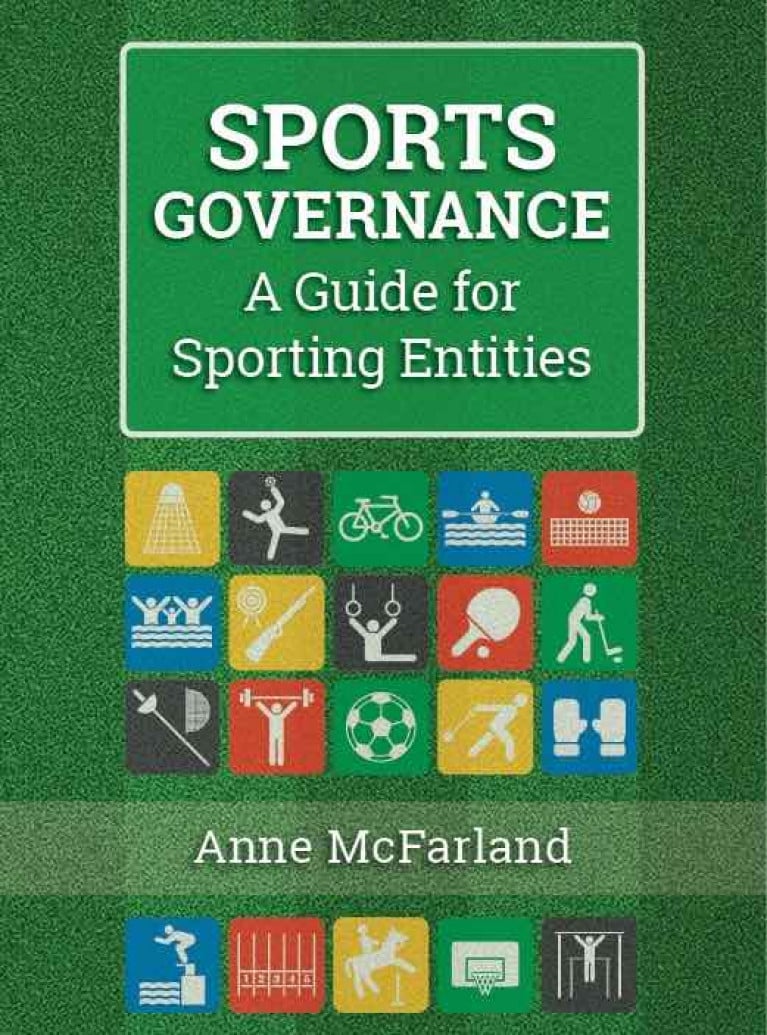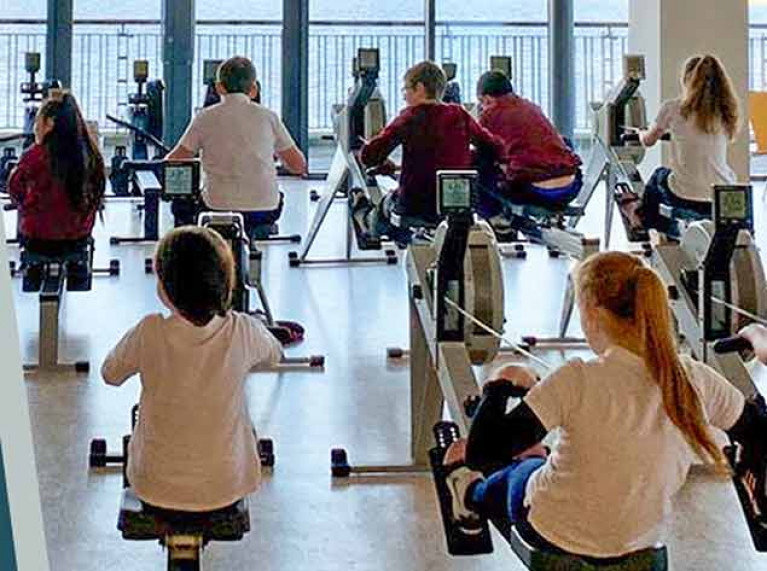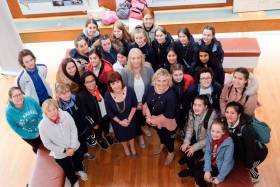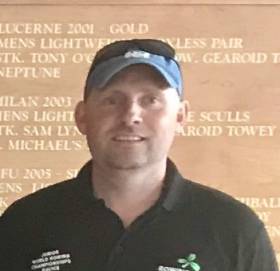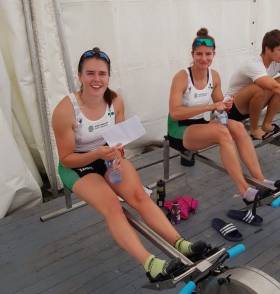Displaying items by tag: Rowing Ireland
Rowing Ireland Awarded €70,079 for 'Urgent Repairs' to the National Rowing Centre in Cork
Rowing Ireland has been awarded €70,079 for urgent repairs to the National Rowing Centre in Cork in the latest Sports Capital and Equipment Programme Regional Capital Allocations.
The amateur rowing union was also awarded €140,771 for Olympic equipment and €171,214 for a European fleet of boats for camps for Paris and the LA Olympics.
Minister Martin announced an overall package of €150 million in new capital grants under the latest round of the Sports Capital and Equipment Programme (SCEP) on Friday, February 11th.
€144 million is allocated to almost 1,900 applications with €6 million kept in reserve for successful appeals lodged by unsuccessful applicants.
More here
Rowing Ireland AGM Postponed to End of October
Rowing Ireland has postponed its 2021 AGM originally scheduled for this coming Sunday 26 September until Sunday 31 October.
The national governing body’s board opted for the five-week delay to give delegates more time to prepare for voting on a number of wide-ranging proposals for Rowing Ireland’s constitution.
These include a new gender balance quota on the board of 40% women, more independent directors, and that the board would have a specified chair distinct from the president’s role.
Rowing Ireland held the first in a series of webinars to discuss the proposals last Thursday (16 September) and the next takes place this evening (Tuesday 21 September) at 7.30pm.
Register on the Rowing Ireland website, where you can also download the relevant documents.
Rowing Ireland has imposed a ban on media interviews with the international team until after the Olympic Games.
After negotiations this week, the ban will be lifted for one Zoom open day for the media under the auspices of the Olympic Federation of Ireland. Olympic athletes are also required to be available in the mixed zone at the Games.
A Rowing Ireland spokesperson confirmed that athletes have been told not to otherwise speak to the media.
It is understood that the high-performance director, Antonio Maurogiovanni, believes this will protect the rowers in terms of public expectations and in regard to their mental health.
“The rowing team will be available for media interviews at a media day, that we are currently finalising details of with the Olympic Federation of Ireland. This will coincide with the official team announcements. Details on this will be confirmed shortly,” Rowing Ireland said in a statement.
The rowing team is one of Ireland’s best hopes for medals in Tokyo. Ireland has qualified six boats and all four Olympic-class boats which competed at the recent World Cup Regatta in Lucerne won medals. During and after the regatta, Rowing Ireland said it would not allow media interviews with the rowers.
Neither the Olympic Federation nor Sport Ireland favours blanket bans on athletes speaking to the media.
In a statement, Sport Ireland said: “Rowing Ireland is an independent organisation and takes its own decisions. There are legitimate performance concerns and extra pressures arising from COVID which led to Rowing Ireland’s decision. That said, some access to the media is preferred for multiple reasons including creating a positive profile for the sport.”
New Book on Sports Governance Launched
Running a sports body has become increasingly onerous. Many sporting entities have become companies and now need to abide by the Companies Act. All entities funded by Sport Ireland must comply with a code of governance, adopted by Sport Ireland, by the end of 2021. In recent years, the sporting world has been rocked by controversies both internationally and here in Ireland, which have had significant repercussions. It is now more essential than ever that all sporting entities, big and small, need to focus on good governance.
Sports Governance: A Guide for Sporting Entities is designed to help board or committee members to understand and address governance issues. The book focuses on three main areas: firstly, an introduction to governance, with a specific look at the governance code for sporting entities and the need for governance; secondly, becoming a board member and the considerations taken by both the person and the organisation before taking on the responsibility; and thirdly the key functions of a board – strategy, risk, accountability, and monitoring. Each chapter ends with essential points for the smaller sporting entity and the club, as well as ten key points.
Sports Governance: A Guide for Sporting Entities is essential reading for anyone involved in running a sporting body, large or small. It will also be of interest to policymakers and auditors. It is available from www.orpenpress.com and all good bookshops for €20.
Anne McFarland is a chartered accountant with a Diploma from UCD in Corporate Governance and a Diploma from the Law Society in Sports Law. She has been a finance director of multinational organisations for many years; she lectures on corporate governance and enjoys working with sporting entities, big and small, to develop strategy and improve governance. This book draws on her practical experience as a board member and as an advisor on governance, as well as her interest in sport, both amateur and professional. She is co-author of A Practical Guide for Company Directors (Chartered Accountants Ireland, 2017).
Rowing Ireland Launches First Virtual Regatta
Rowing Ireland has launched a Virtual Regatta. The regatta will run over lockdown bank holiday weekend from 9 am on Saturday the 2nd of May and finish at 5 pm Monday the 4th of May.
This will be an opportunity for our members to represent their clubs and for our members at every level. Whether they are a World medallist or part of our High-Performance team this will give Rowing Ireland members an opportunity to clock their km's with their club and province for some great prizes while staying active.
Prizes
There are four new Concept 2 ergometers and some exciting spot prizes to be won. Here are the prizes on offer:
- A new Concept2 ergometer for the top club in each province.
- A trophy for the top club in the country.
- There are exciting spot prizes to give out along the way for best photo submission, most metres completed in one day, and best 2k time.
- Individual 1st, 2nd and 3rd medals for most distances in each age category in each province.
How it will work
- Rowers complete their work out and take a selfie with their monitor showing their times
- Input their information, distances in metres and selfie through the Rowing Ireland Virtual Regatta page
Rowing Ireland is encouraging its High-Performance team preparing for Tokyo 2021 and Junior 14 members to wear their club colours proudly and compete in the first Virtual Regatta.
Minister for Culture, Heritage and the Gaeltacht, Josepha Madigan, announced a new strategic partnership between Waterways Ireland and Rowing Ireland during the Get Going, Get Rowing #Blitzit Festival of Rowing on Grand Canal Dock on 9 May.
The partnership will seek to promote rowing programmes and clubs on the over 1,000km of inland waterways managed by Waterways Ireland.
It will also see a range of Rowing Ireland programmes, including Row for Life, the Get Going Get Rowing schools programme and Transition Year rowing coach programme, avail of Waterways Ireland facilities and sites to help promote improved levels of fitness, health and wellness across all ages in a fun and sociable environment.
Waterways Ireland, which is under the aegis of the Department of Culture, Heritage and the Gaeltacht, says it has seen a huge increase in the number of recreational users on and along all the waterways in recent years and there is now even more opportunity for people to try new recreational activities.
The new partnership allows Waterways Ireland and Rowing Ireland to join forces in promoting the health and well-being and social opportunities that are available through rowing in the great outdoors.
“For Waterways Ireland, partnerships are an ideal opportunity to encourage people to see inland waterways as a fitness and recreational opportunity for them,” said Sharon Lavin, head of marketing and communications at Waterways Ireland.
“Through working at a strategic level with Rowing Ireland, further programmes will be developed and people young and old will learn skills to help them stay fit and healthy for life.”
Rowing Ireland chief executive Michelle Carpenter added: “Our Get Going, Get Rowing programme — that has engaged 30,000 individual students in 2018 — is key to transitioning those from our school's programme to on the water rowing and activity on the water for life and our clubs.
“These values are significant elements of our strategic plan and we are thrilled to work hand in hand with our partners in Waterways Ireland.”
Further information on rowing programmes under this partnership can be found at RowingIreland.ie and www.WaterwaysIreland.org.
#Rowing: Kinetica Sports Nutrition, one of Ireland’s leading sports nutrition brands, today announced that it is rowing in behind one of Ireland’s strongest groups of Olympic 2020 hopefuls as it signs up to become the official headline partner of Rowing Ireland.
The partnership will enhance the brand’s visibility in one of Ireland’s fastest growing sports, building on its devoted following amongst professional athletes and international sports teams. The sponsorship will provide funding to Rowing Ireland along with Kinetica’s range of sports nutrition products. Rowing Ireland the will have the opportunity to promote and encourage all upcoming levels of rowing talent. The partnership also aims to highlight that rowing is a sport in which anyone can participate.
In addition to the overall partnership arrangement, Kinetica has signed up two-time Olympian and current World Champion Sanita Puspure as an official brand ambassador. Sanita’s excellent run of form continues, on the back of her recent gold-winning performance at the Memorial Paolo d’Aloja in Piediluco, Italy less than three weeks ago. Sanita was joined at the official launch by fellow Olympic hopefuls, Aifric Keogh and Monika Dukarska. The partnership will be amplified through the brand’s new #KineticaIgnites campaign; designed to ask everyone to look at the motivation behind their sport and exercise and inspire everyone to use sport and exercise to help build a healthy body and mind.
Ann Marie Brady, Senior Brand Manager, Boyne Valley, said: “We are thrilled to partner with Rowing Ireland, a fantastic organisation that will be at the forefront of Ireland’s medal hopes in Tokyo next year. Our aim with this sponsorship is to provide support to all rowers and coaches and help them to reach their maximum potential with the support of our wide range of great-tasting Kinetica products. Kinetica is trusted and used by many professionals and athletes across leading teams and associations in Ireland and abroad.
"This is an exciting opportunity for us to be present at several high-profile competitive tournaments as well as a chance for us to extend our knowledge and expertise with some of the best sporting talent that Ireland has to offer. As well as this, we’re excited to help Rowing Ireland in promoting rowing as a sport that anybody can get involved in and reminding people that you don’t need to be an Olympian to get involved and enjoy this great sport.”
Michelle Carpenter, CEO, Rowing Ireland added, “We are delighted to welcome Kinetica on board as our official headline partner. Our goal is always to promote and encourage participation in rowing at all levels and Kinetica can help us achieve that with their support and expertise. 2016 was a massive breakthrough year for rowing in Ireland, achieving our first ever silver medal in Rio. Our sights are fully set on Tokyo in 2020 and we look forward to collaborating with Kinetica and are grateful for their backing and commitment throughout this journey. We are very much looking forward to the exciting times ahead.”
Kinetica will also benefit from increased visibility on Rowing Ireland’s boats and team clothing as well as being at the forefront of all major rowing events at home and abroad, including title sponsorship of the upcoming Irish Championships. As part of the exciting agreement, Kinetica will adopt the naming rights to the National Rowing Ireland centre in Farran Woods, Co. Cork.
Keane Takes on New Role with Rowing Ireland
#Rowing: Fran Keane has been chosen as Operations Manager and Pathway Coordinator for Rowing Ireland. Keane comes from a strong Athlone rowing family. His father and uncles rowed for Athlone Boat club and after following the family tradition he went on to row for UCC and Cork Boat Club. He also had a year rowing in Galway. Having moved to Cork in 2002 Fran secured a job teaching in Presentation Brothers College in 2004 where he also had the role of Head Rowing Coach.
Over the past 14 years in this job, Fran has overseen the development of the schools rowing program to where it has nearly 100 boys participating. He has coached a number of winning crews at the Irish Championships as well as preparing athletes for international selection. Keane has coached successfully at all junior international levels: Home Internationals, Coupe de la Jeunesse, Junior European Championships and Junior World Championships.
For Rowing Ireland, he has been involved in a voluntary capacity as Lead Sweep Coach, Lead Junior Men’s Coach and Junior Lead Coach. “I am delighted to be joining the Rowing Ireland team at such an exciting time for Irish rowing and look forward to the challenge that this role has to offer,” he said after his appointment. Speaking about the appointment, the chair of the high-performance committee, Neville Maxwell, said: “Forward planning is key to our organisation, not only with targeting Tokyo (2020) but also preparing for Paris (2024). We believe that the appointment of Fran will fit perfectly with this strategy. Fran’s experience at domestic club level and with the junior team over the last number of years will hugely benefit Rowing Ireland as we build our clubs and crews in the upcoming years.”
#Rowing: The agm of Rowing Ireland was businesslike and brief – coming in under an hour.
Neville Maxwell, the chair of the high performance committee, praised the “energy and enthusiasm” of high performance director Antonio Maurogiovanni. “He wants a system which is open and transparent,” he said.
Maxwell said that there was a move away from lightweight rowing and it was essential to build a programme which would last. Finding new sources of income was very important.
Leo Gibson replaced outgoing treasurer Dan Buckley, who has stepped down. The Old Collegians man spoke of the hope of drawing down Large Scale Sports Infrastructure grants.
Rowing Ireland president Eamonn Colclough said the priority was to finance work on the National Rowing Centre, with the hope of replacing the slips and, perhaps, the buoyed course. Next in priority would be Lough Rinn and then the proposed new Blessington course.
Colclough said that he hoped there was a big uptake on the package deal which will give Irish spectators a good way to travel to the World Rowing Championships in Linz in Austria in August/September. “I would love to hear The Fields of Athenry ring out over the waters in Linz,” he said.
Rowing Ireland is preparing to facilitate clubs using Lough Rinn by taking over the insurance requirements asked for by Leitrim County Council. The Council will “spend hundreds of thousands of euro” on developing the course and surrounds, Colclough told the agm.
The fixtures calendar for 2020 emerged in a very similar form to the one proposed. Erne Head moved to a week earlier than scheduled and will now take place on March 7th and the Castleconnell Sprint Regatta takes a similar step to May 9th. Carlow’s Dambuster Head is set to take place on February 1st.
Galway Regatta (June 6th) and Shandon Masters Regatta (August 15th) were late additions to the draft calendar put before delegates.
Awards
President’s: Seamus Scully, Carlow
Connacht: Paul Gallen
Leinster: Gerry Conway, Frank Moore, Willie Ryan, Mick Carney, Andrew Coleman
Munster: Brian Sheppard
Ulster: Jeremy Johnston
#Rowing: Rowing Ireland has received a commendation from the International Olympic Committee for its work in promoting women’s sport. The Irish governing body were awarded the “Women and Sport” Achievement Diploma in recognition of its “outstanding contribution to promoting the development and participation of women and girls in sport”.
The Get Going, Get Rowing programme has introduced big numbers of girls to rowing.


























